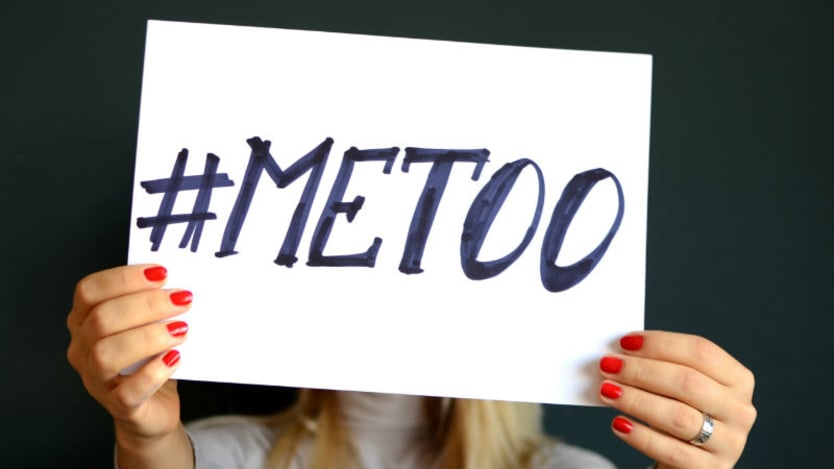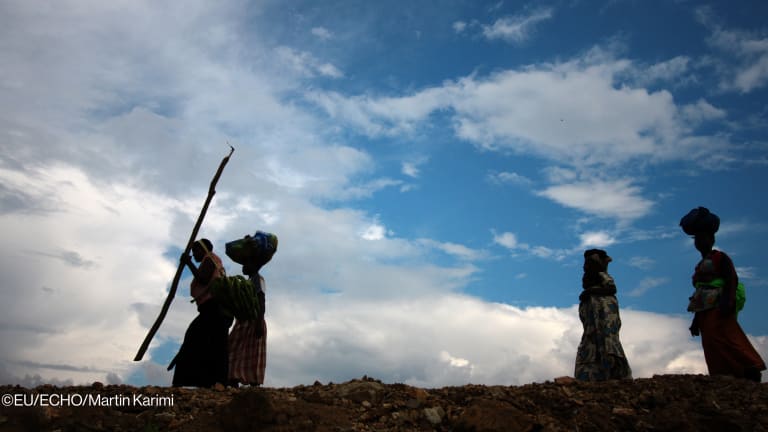
The #MeToo campaign has taken us toward reducing the stigma of sexual violence, which exists in all corners of the world. This includes the humanitarian community, where 86 percent of aid workers report knowing a colleague who has experienced sexual violence in the course of their work, and I have experienced multiple incidents of sexual violence myself.
The importance of survivors finding their voices and building a community cannot be underestimated. It is undoubtedly helping survivors confront their experiences with sexual violence. It is helping us heal and develop support networks. When the campaign began, I found my voice to talk about an incident of sexual harassment I had been experiencing from a colleague, one that I had held in shame for nearly two years.
The downside of the #MeToo campaign, however, is that it requires survivors like myself to expose their experiences alone. It risks retraumatization and isolation. It also gives the impression that survivors are the only part of an incident of sexual violence. It ignores the fact that there is a perpetrator who should be in the conversation.
Too often, in our efforts to raise the voices of survivors, we forget to talk about perpetration. In the course of my work addressing sexual violence in the humanitarian community, I have undoubtedly been guilty of this myself. It is hardly surprising; the narrative for women — in particular — is about how to protect ourselves from experiencing sexual violence. Rarely do we discuss how to stop potential perpetrators of sexual violence from acting on their impulses.
With barriers being broken for survivors, and spaces opening to give strength to their voices, the next big push must be to focus on perpetrators. This must start with how we approach the prevention of sexual violence in humanitarian working and living spaces.
Prevention begins with recruitment, and halting the floating of serial perpetrators around the humanitarian system. It requires strengthened background and reference checks. This also requires organizations to take appropriate action against those found to be perpetrating sexual violence — properly firing them for this offense and communicating their behavior to future employers.
We also need to consider how we train humanitarians in this field, and the framing of discussions around sexual violence. It is still too common that talks about sexual violence are housed under how women can stop themselves from becoming victims of sexual violence, in disturbing victim-blaming fashion.
Instead of having a conversation about how a woman should not walk alone at night in a skirt, why not talk about how a woman walking alone at night in a skirt is not asking to be hit on or assaulted? Instead of scaring young women with stories about how they must watch their drinks when at a bar, why not talk about how drugging someone to have sexual relations with them is rape?
Additional guidance on how humanitarian organizations can address sexual violence in their workplaces can be found in the following resources:
► Report the Abuse: Good Practices for Improved Prevention Measures, Policies, and Procedures
►Tufts: STOP the Sexual Assault Against Humanitarian and Development Aid Workers
►IASC: Senior Focal Points on Sexual Harassment and Abuse of Aid Workers
Let us have a conversation about consent. We can talk about shame, stigma, and the impact of sexual violence. We must have conversations about how to strengthen accountability and justice, and ensure that perpetrators do not slip through the cracks.
Only when trainings for humanitarians frame around how perpetrators should not commit acts of sexual violence, rather than how one stops themselves from being attacked, can we start to approach a reality where sexual violence will no longer be a normalized experience.
Because until we start having these discussions, survivors will continue to suffer, being forced to come forward and expose their experiences with sexual violence.
Nothing changes; nothing ends. No one is held account for our suffering and silence.
So here is my revolutionary idea: now that the #MeToo campaign is winding down, let’s start a new one. Let’s call it the #IDidIt campaign. Let’s encourage men and women to talk about how they have crossed social, cultural, and personal boundaries to commit acts of sexual violence, even if unconsciously. Let’s discuss how misconceptions about consent and lack of sexual education allow for harm to be caused.
Let’s get perpetrators to apologize for the damage they cause. Let’s start conversations about how to stop sexual violence from occurring in the first place.
Read more international development news online, and subscribe to The Development Newswire to receive the latest from the world’s leading donors and decision-makers — emailed to you free every business day.
Read more Devex coverage
► Meet the 'champions' getting tough on sexual assault against aid workers
► UN must end 'toxic tolerance' of sexual abuse of aid workers, top official says
► Sexual assault and harassment in the aid sector: Survivor stories
► Advocacy NGO shining a light on sexual assault of aid workers set to close
► LGBT, female aid workers at risk of sexual assault, report finds






